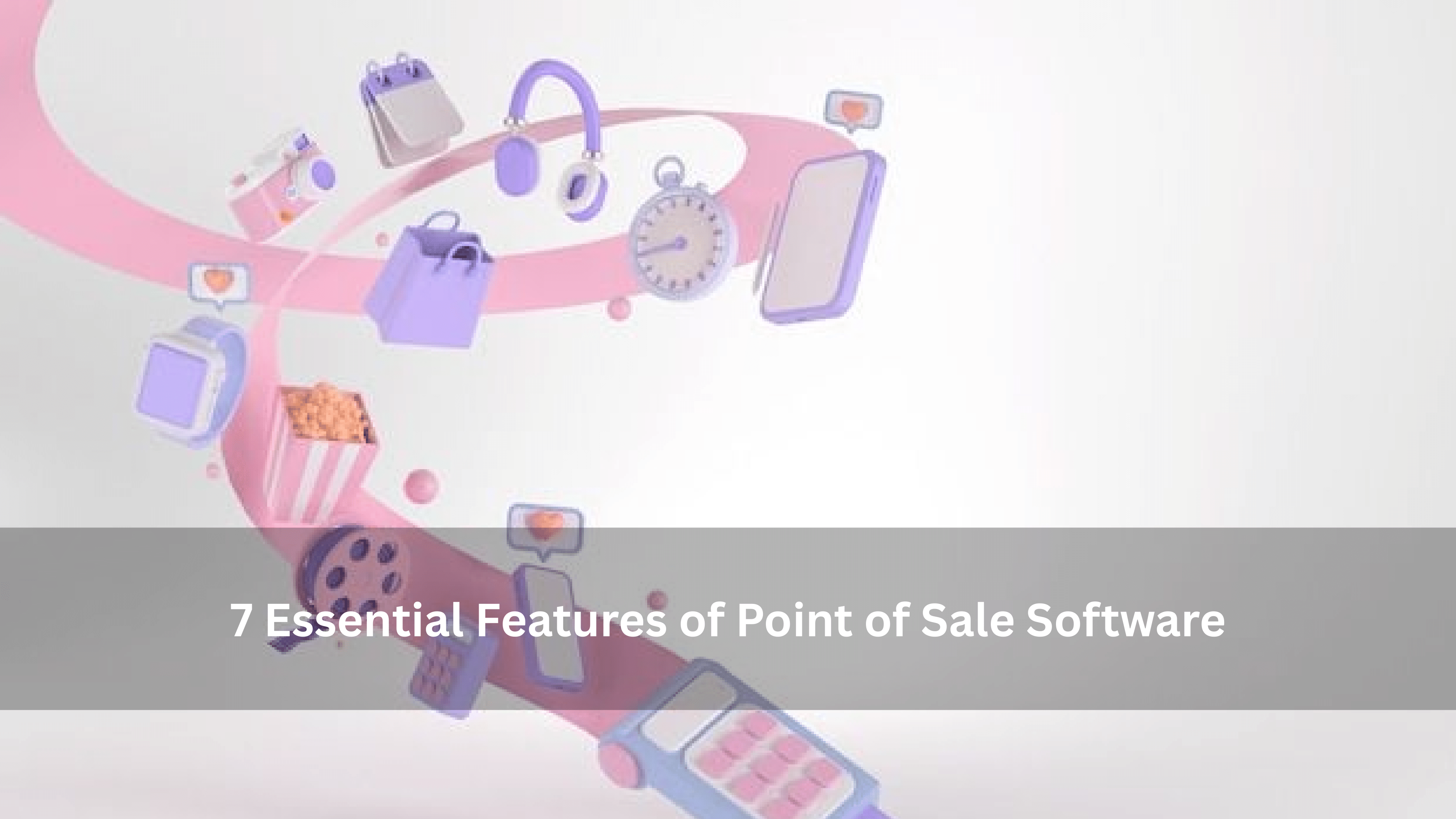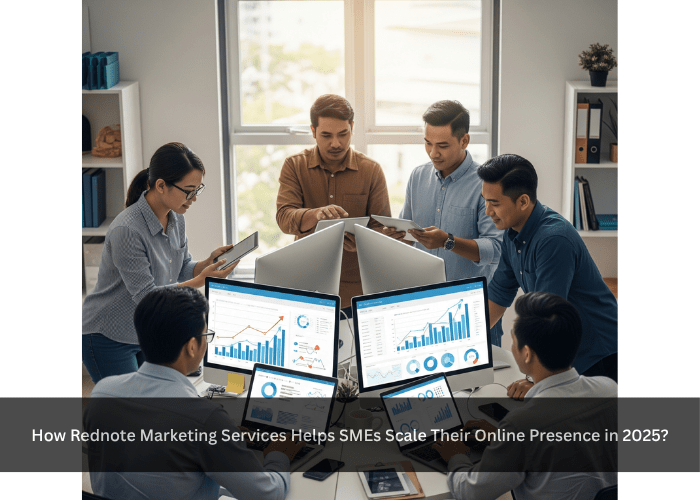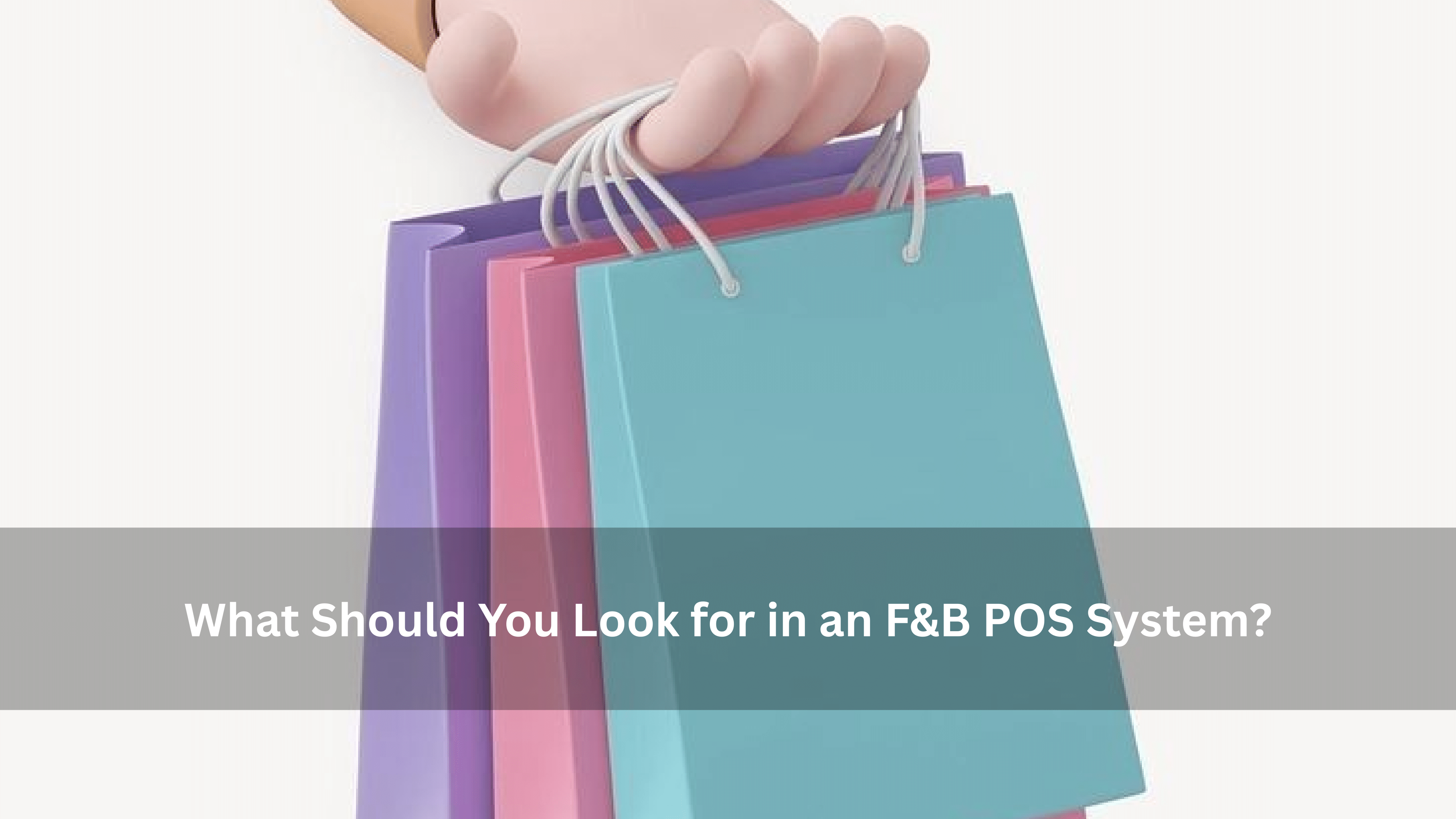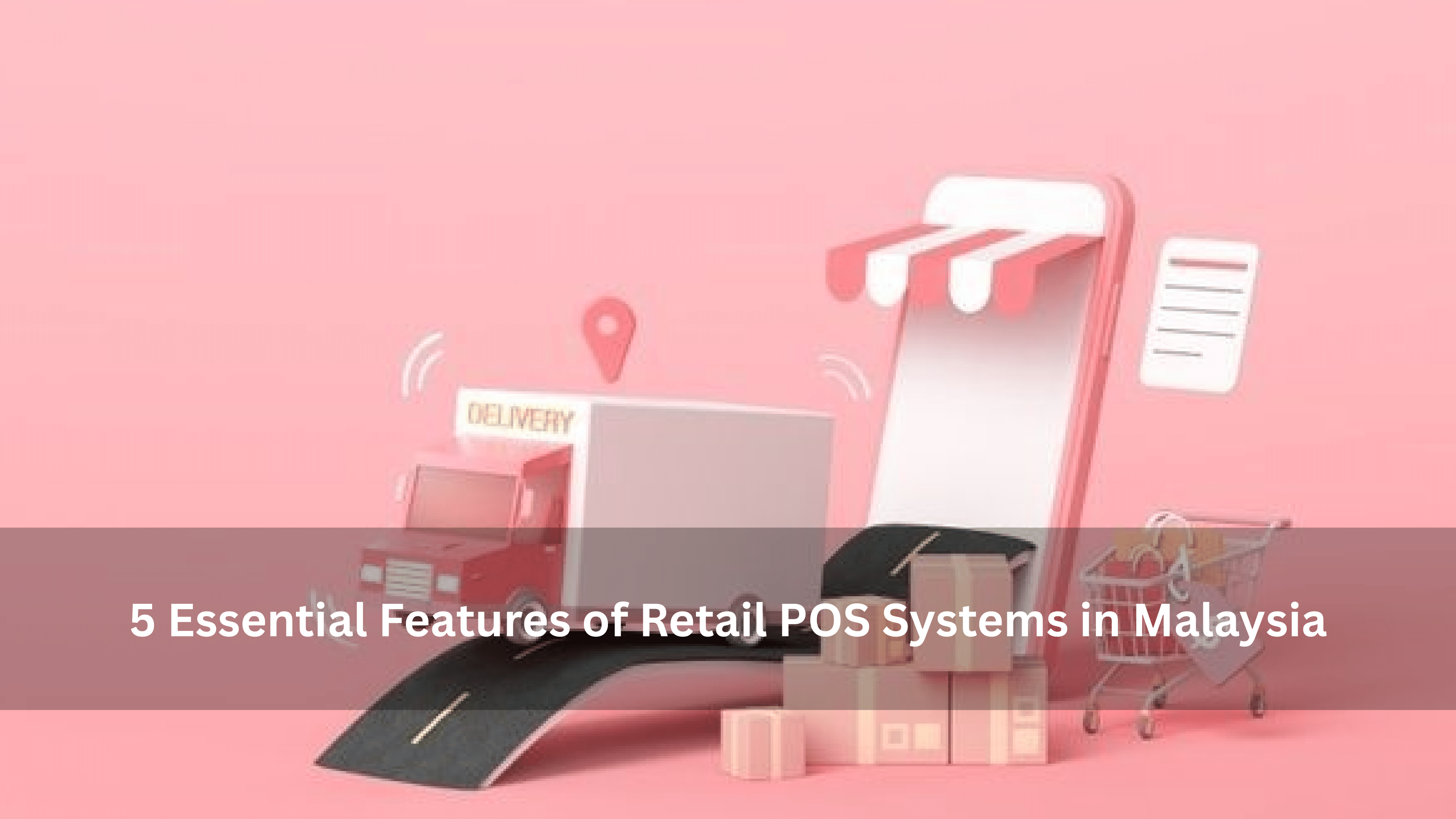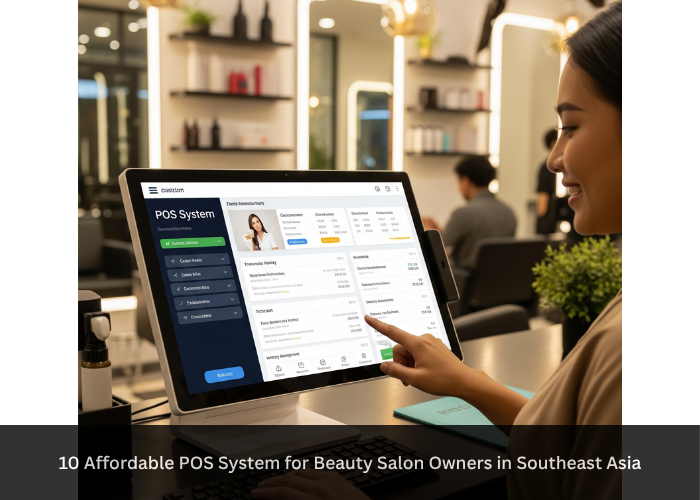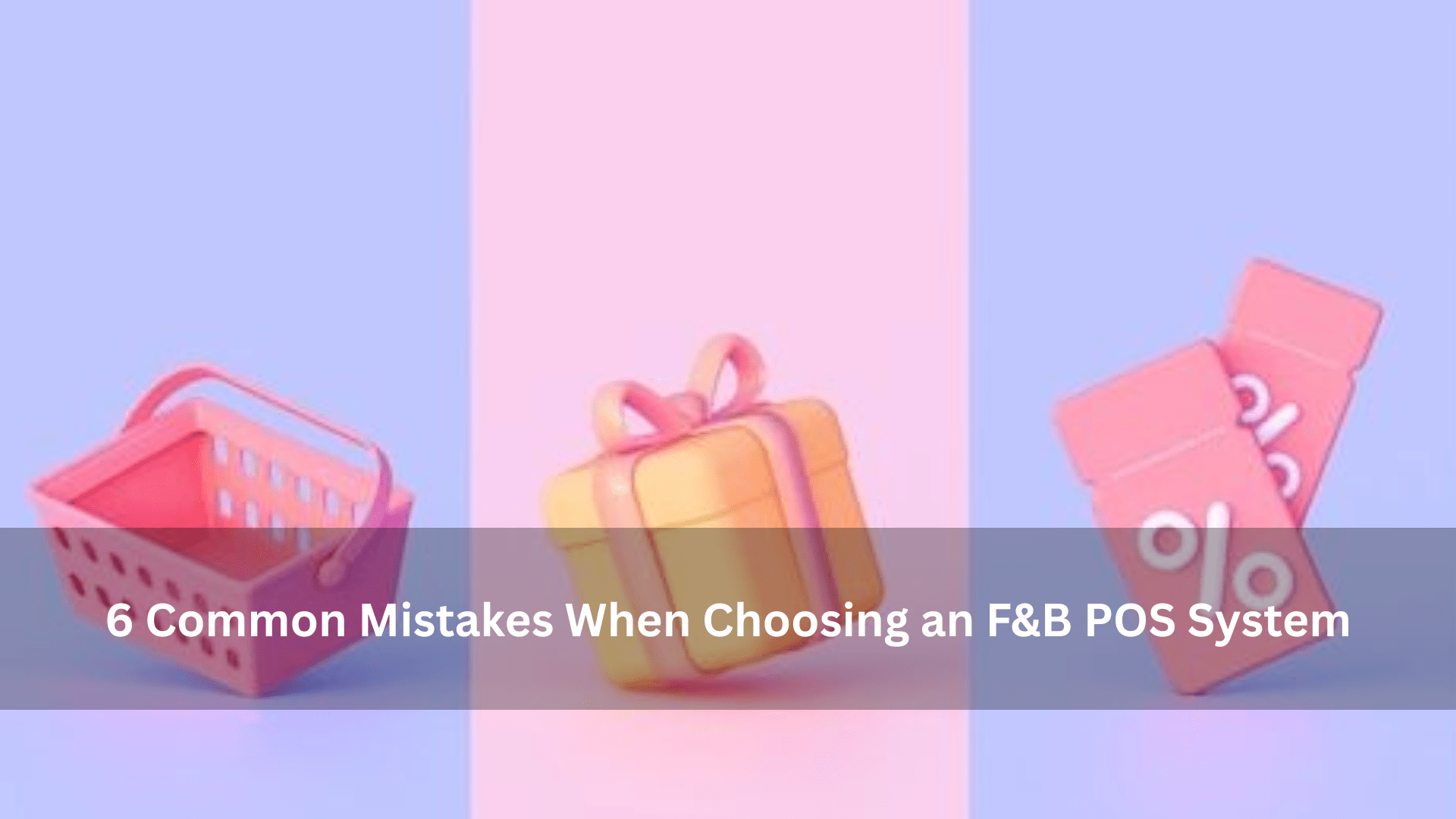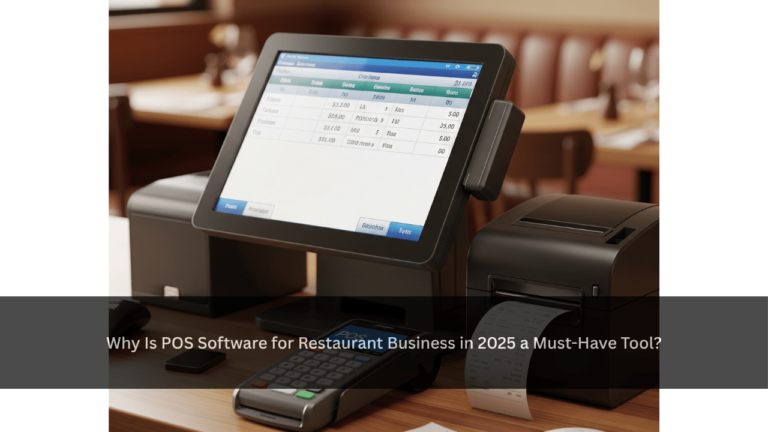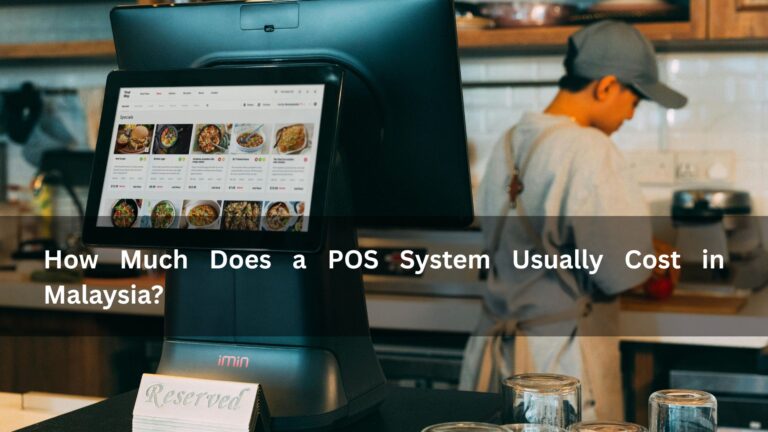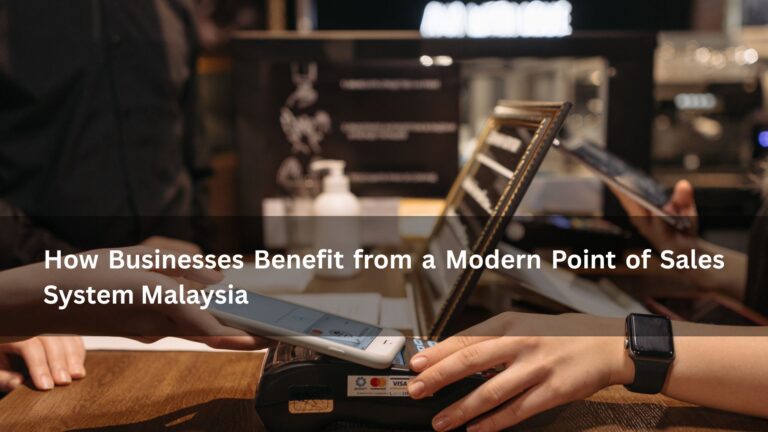In today’s competitive retail and food & beverage (F&B) industries, choosing the right Point of Sale Software is more critical than ever. Whether you’re running a café, boutique, or convenience store, a robust POS system does more than just process transactions. It integrates core business operations — from inventory control to sales analytics — into one streamlined platform.
In this article, we explore the 7 essential features of Point of Sale Software that every business should look for to stay efficient, data-driven, and customer-focused.
1. Inventory Management in Point of Sale Software
One of the most vital components of any Point of Sale Software is inventory management. A POS with advanced inventory features ensures you know exactly what’s in stock, what’s running low, and what’s selling fast.
Key Benefits:
Real-time tracking: Track stock levels across multiple locations or outlets.
Automated alerts: Receive notifications for low-stock or out-of-stock items.
Barcode integration: Scan items directly into your POS system for faster checkouts.
Supplier management: Easily reorder from suppliers and track purchase orders.
Good inventory management reduces human error, avoids overstocking or understocking, and ultimately protects your bottom line.
2. Sales Reporting and Analytics in Point of Sale Software
The ability to access and analyze your sales data is a game changer. Modern Point of Sale Software includes detailed reporting features that help you make data-driven decisions.
What to Expect:
Daily, weekly, and monthly sales reports
Best-selling product insights
Sales trends by time, staff, or outlet
Customizable dashboards
With actionable insights at your fingertips, you can optimize your product mix, run successful promotions, and schedule staff according to peak hours.
3. Customer Relationship Management in Point of Sale Software
Building customer loyalty is easier when you know your customers. Integrated CRM features in Point of Sale Software help store customer data, track purchasing behavior, and enable personalized marketing.
CRM Features to Look For:
Customer profiles and purchase history
Loyalty program integration
Email and SMS marketing tools
Feedback and survey modules
These tools allow you to tailor your service, reward loyal customers, and send targeted offers — all of which help increase repeat visits and higher spending per transaction.
4. Multi-Payment Processing in Point of Sale Software
Today’s consumers expect flexible and secure payment options. Reliable Point of Sale Software must support multiple payment methods to ensure seamless checkout experiences.
Supported Payment Types Might Include:
Cash and cards (credit/debit)
E-wallets like GrabPay, Boost, Touch ‘n Go
Online payments (FPX, bank transfers)
Buy Now, Pay Later (BNPL) options
Advanced POS systems also offer offline payment processing and multi-currency support, which are especially useful for businesses that cater to international tourists or operate during unstable internet conditions.
5. Employee Management in Point of Sale Software
Staff productivity and accountability are essential in any business. Good Point of Sale Software includes features for employee scheduling, time tracking, and performance reporting.
POS Staff Management Tools Include:
Clock-in/clock-out functionality
Role-based access controls
Sales tracking by staff member
Staff commissions and incentives
By linking employee performance with sales data, business owners can reward top performers, identify training needs, and reduce instances of fraud or human error.
6. Cloud-Based Access and Mobility in Point of Sale Software
Modern business operations demand flexibility. Cloud-based Point of Sale Software enables real-time access to your business data from anywhere in the world.
Why Cloud-Based POS Matters:
Access from any device (mobile, tablet, desktop)
Automatic backups and software updates
Centralized multi-location management
Remote troubleshooting and support
For retail chains or businesses with multiple outlets, cloud access ensures consistency across locations and minimizes IT overhead costs.
7. Integration Capabilities in Point of Sale Software
Your Point of Sale Software should not operate in isolation. It should seamlessly integrate with other essential tools like accounting platforms, eCommerce systems, marketing apps, and third-party delivery services.
Common Integrations Include:
Accounting software (e.g., Xero, QuickBooks)
E-commerce platforms (e.g., Shopify, WooCommerce)
Delivery services (e.g., GrabFood, FoodPanda)
ERP and warehouse systems
Integrations eliminate manual data entry, reduce errors, and improve overall operational efficiency by syncing data across platforms automatically.
Bonus: Security and Compliance in Point of Sale Software
Security features are often overlooked but are just as important. Your POS system must comply with data protection laws and industry standards.
Must-Have Security Features:
User access control and role-based permissions
Secure data encryption
Compliance with PCI DSS and local regulations
Regular security updates
Failing to secure your POS system can result in data breaches, financial loss, and damaged reputation — especially if customer data is involved.

